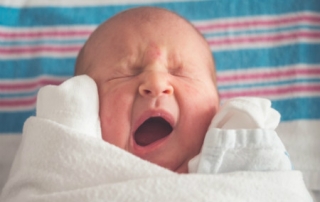Measuring the Effects of Antidepressants versus Untreated Depression on Pregnancy Outcomes
Multiple studies have demonstrated an increased risk of poor neonatal adaptation associated with exposure to selective serotonin reuptake inhibitor (SSRI) antidepressants in late pregnancy. Results in the literature consistently indicate that about 25%-30% of infants exposed to SSRIs late in pregnancy manifest symptoms of poor neonatal adaption, including jitteriness, restlessness, increased muscle tone, rapid breathing. These symptoms are transient, resolving spontaneously with no specific medical intervention.



